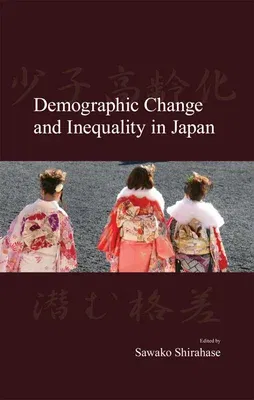Demographic Change and Inequality in JapanPaperback, 31 December 2011

Qty
1
Turbo
Ships in 2 - 3 days
In Stock
Free Delivery
Cash on Delivery
15 Days
Free Returns
Secure Checkout

Part of Series
Japanese Society
Print Length
254 pages
Language
English
Publisher
Trans Pacific Press
Date Published
31 Dec 2011
ISBN-10
1920901639
ISBN-13
9781920901639
Description
Product Details
Book Format:
Paperback
Country of Origin:
US
Date Published:
31 December 2011
Dimensions:
21.08 x
13.72 x
1.78 cm
Genre:
Asian - Japanese
ISBN-10:
1920901639
ISBN-13:
9781920901639
Language:
English
Pages:
254
Publisher:
Series:
Weight:
385.55 gm